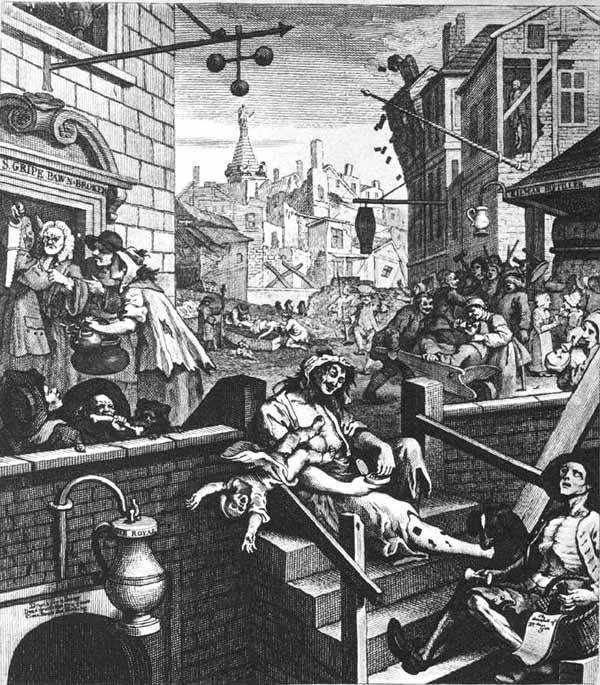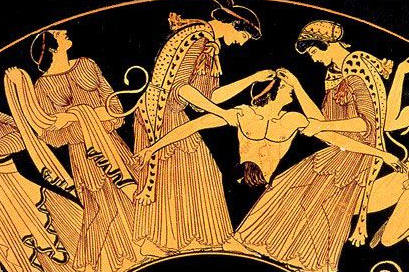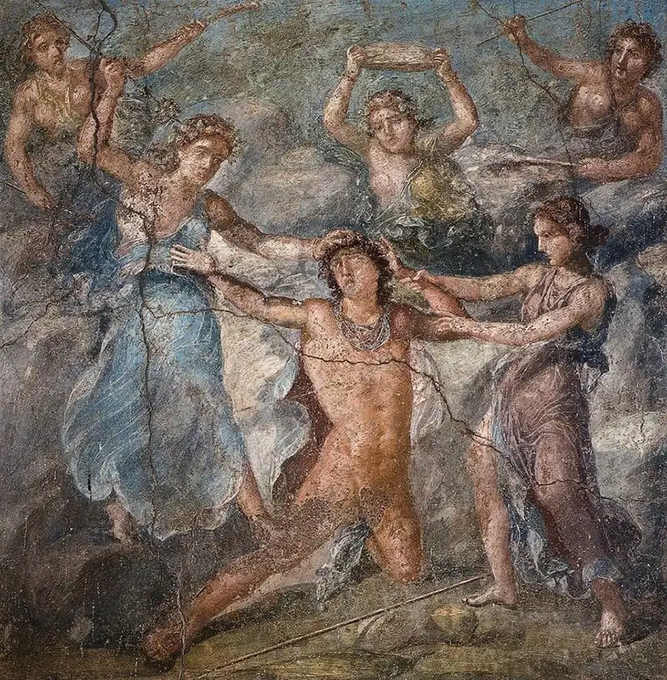The Historical Dionysus
In antiquity, Euhemerus formulated the theory that the gods were
really men. Certainly some of the things 'the gods' are reported to
have done could have been done by men. 'Saturn' is both a planet in
the sky, and also a beloved king in Italy from times gone by, when
people ate acorns. There is no reason to disbelieve that there was a
king by that name, nor that his reign was remembered gratefully by
his subjects. His connection to the planet of the same name,
however, must be conceded to be a little bit sketchy. Was there ever
a 'historical' Dionysus?
The cult of Dionysus, which originated in areas to the north of
Greece, spread like wildfire over the ancient world. Like the
'hippies' of the 1960's, they found in intoxication the secret of a
happy life. One can readily imagine how that turned out: the ruined
and blasted lives, the human detritus collecting in the gutters. The
story tells, that Dionysus invaded India, with his troop of
dishevelled, drunken women, many of whom met a miserable death at
the hands of their Indian captors. The Indian king charged with
protecting homeland security got it right:
"'No god, no god is that man; he has lied about his
birth.'" (Demiades, quoted, in Nonnus, Dionysiaca, Book XXXIX, line 53).
Pentheus wasn't buying it either, telling Dionysus: "You also have a touch of your
deceitful mother. Semele was a liar, and Cronides burnt her with his
thunders: take care that Cronides does not crush you like your mother. .
.You are no Olympian offspring of Cronion: for the lightnings cry aloud
the shame of your perishing mother, the thunders are witnesses of her
illicit bed. Zeus of the Rains burnt not Danae after the bed; he carried
Europa, the sister of my Cadmos, and kept her unshaken — he did
not drown her in the sea. . .If you have in you the blood of Zeus, migrate
to the vault of Olympos and live in heaven, leave to Pentheus his native
Thebes." (Nonnus, Dionysiaca, Book XLVI). Of course we
know what happened to him. As the history is told by acolytes like Nonnus,
Dionysus romped through the ancient world preceded by brutal, senseless,
alcohol-fueled murders, which are actually OK because the parties
involved were turned into stars or trees or whatever. Dionysus was no
god, just a mere man, demon-possessed as it may have been, but with his
hand on no door to open into heaven.
Did it happen? Certainly many of the details of the account of Bacchus' triumphal
procession from west to east and back are made up; I doubt he was really
accompanied by pans, satyrs, and other mythological creatures. However
there is probably also a kernel of fact, because there is nothing
supernatural or mythical about Timothy Leary and others of the pied
pipers who tried to lure a generation of young people down the same dead
end. What was promised was bliss, what was delivered may not have been
bliss, but only brain damage. Just visualize the dancing frenzies of the Middle Ages, which might,
indeed, have been themselves revivals of the Dionysian religion. Mass
assemblages spontaneously formed and rolled through the countryside, in
Germany and other nominally Christian countries including Belgium and the Netherlands: "So early as the year
1374, assemblages of men and women were seen at Aix-la-Chapelle, who had
come out of Germany, and who, united by one common delusion, exhibited
to the public both in the streets and in the churches the following
strange spectacle. They formed circles hand in hand, and appearing to
have lost all control over their senses, continued dancing, regardless
of the bystanders, for hours together, in wild delirium, until at length
they fell to the ground in a state of exhaustion." (The Dancing Mania,
Justus Friedrich Carl, Section 1). "Peasants left their plows, mechanics their
workshops, housewives their domestic duties, to join the wild revels,
and this rich commercial city [Metz] became the scene of the most
ruinous disorder." (The Dancing Mania, Justus Friedrich Carl, Section 1).
If Bacchus invaded India in this manner, surrounded by a core of armed
men ready to kill and be killed in the midst of a vast procession of
drunken dancing maenads, that is far from being historically impossible.
In the religious literature of India, there remains a deposit of
information about 'Soma:' "Beautiful Vayu, come, for thee these Soma drops have been prepared:
Drink of them, hearken to our call.
Knowing the days, with Soma juice poured forth, the singers glorify
Thee, Vayu, with their hymns of praise.
Vayu, thy penetrating stream goes forth unto the worshipper,
Far-spreading for the Soma draught." (Rig-Veda, The First Book, Hymn 2). This substance was ingested or imbibed to
produce blissful union with the gods. However this literature seems to have been monkey-wrenched and disabled to
the point where one cannot recognize any really existing substance. One must
suspect originally it was just Dionysus' wine,— he did after all come from India,— but a later and a wiser
generation realized this is one of the worst and most delusive scams you
can run on people, to promise heaven but deliver alcoholism. Still they
felt the literature was holy and they could not just discard it. This is one
false religion which will not only land you in Hell, but will also
ruin your life on your way there.

|


